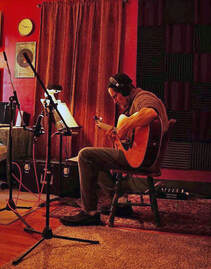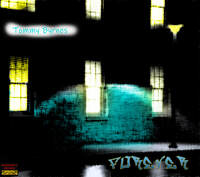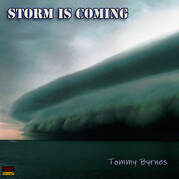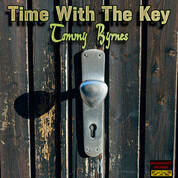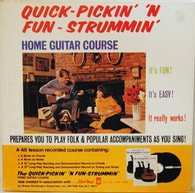
Tommy Byrnes is a multi-instrumentalist and composer whose muse has led him down some remarkable and varied musical paths. And he has his mother to thank for it. She bought him his first guitar for his 10th birthday.
Tommy worked hard to master his new hobby. But he soon realized that music was more than a pastime; it was a passion. He constantly practiced to learn the fundamentals, taking instruction from a 6 record home guitar course put out by Kenny Rogers, of all people!. The family would groan every time he played those lessons on the stereo. It usually went like this:
“Now quickly strum the G chord;” the record would say,
“Slow down, Kenny, I dropped my pick,” Tommy would say
“Ugggh’” his family would say.
One summer Saturday night some friends called and asked if Tommy wanted to go to an outdoor concert by a band with the rather odd name of How To Change A Flat Tire. They played Celtic music. “The basketball team has their own music style?,” he asked. He was soundly ignored for the rest of the car ride. That show was to be a turning point. He felt this was the music that he was meant to play all along.
The next day he gave his best friend his Stratocaster and amp. He also gave his best friend's girlfriend his entire record collection, feeling he would never listen to those disks again. (That one still smarts). It also brought a trip to the local music store to buy a Chieftains record and a tin whistle.
Shortly after this Hibernian epiphany began exploring the techniques of open tunings for guitar under the tutelage of the legendary acoustic guitarist Bill Shute. Different tunings allowed him to play diverse styles; from the blues he cut his teeth on to Baroque instrumentals.
Tommy worked hard to master his new hobby. But he soon realized that music was more than a pastime; it was a passion. He constantly practiced to learn the fundamentals, taking instruction from a 6 record home guitar course put out by Kenny Rogers, of all people!. The family would groan every time he played those lessons on the stereo. It usually went like this:
“Now quickly strum the G chord;” the record would say,
“Slow down, Kenny, I dropped my pick,” Tommy would say
“Ugggh’” his family would say.
One summer Saturday night some friends called and asked if Tommy wanted to go to an outdoor concert by a band with the rather odd name of How To Change A Flat Tire. They played Celtic music. “The basketball team has their own music style?,” he asked. He was soundly ignored for the rest of the car ride. That show was to be a turning point. He felt this was the music that he was meant to play all along.
The next day he gave his best friend his Stratocaster and amp. He also gave his best friend's girlfriend his entire record collection, feeling he would never listen to those disks again. (That one still smarts). It also brought a trip to the local music store to buy a Chieftains record and a tin whistle.
Shortly after this Hibernian epiphany began exploring the techniques of open tunings for guitar under the tutelage of the legendary acoustic guitarist Bill Shute. Different tunings allowed him to play diverse styles; from the blues he cut his teeth on to Baroque instrumentals.
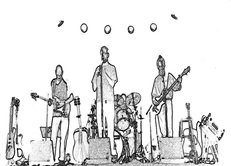
In the early eighties Tommy was off to live in Ireland, choosing not to go to music school. He felt that playing in sessions at pubs in Dublin was the only way to really learn the complexities and nuances of traditional music. The Guinness didn't hurt either. He made his living as a busker (street musician), playing on the street every day and in sessions every night, which honed his chops and put him in contact with some of the finest traditional musicians in Ireland.
Back in the States Tommy formed the critically acclaimed band Ockham's Razor with his buddies Sean Cowhig on bass, Brad Hurley on flute and tin whistle and Fraser Stowe on drums.The Razors incorporated Celtic, rock and folk musical influences into original compositions and highly original arrangements to traditional tunes. The Razors played extensively for the next decade and released three recordings.
Back in the States Tommy formed the critically acclaimed band Ockham's Razor with his buddies Sean Cowhig on bass, Brad Hurley on flute and tin whistle and Fraser Stowe on drums.The Razors incorporated Celtic, rock and folk musical influences into original compositions and highly original arrangements to traditional tunes. The Razors played extensively for the next decade and released three recordings.
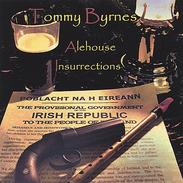
After twelve years of being with the group he felt it was time to pursue a different dream. In 2001 he left the band to build a recording studio and release his own albums. After a long and circuitous route, he realized that goal, releasing the album, Alehouse Insurrections in 2004.
Since then Tommy has started Southpaw Recording Studios and Sovereignty Music Services in Bernardston, MA and he and his wife Jessica founded the Upper Valley Music Festival, a benefit music festival that features the best acts of the amazing music scene in Western Massachusetts.
Since then Tommy has started Southpaw Recording Studios and Sovereignty Music Services in Bernardston, MA and he and his wife Jessica founded the Upper Valley Music Festival, a benefit music festival that features the best acts of the amazing music scene in Western Massachusetts.
